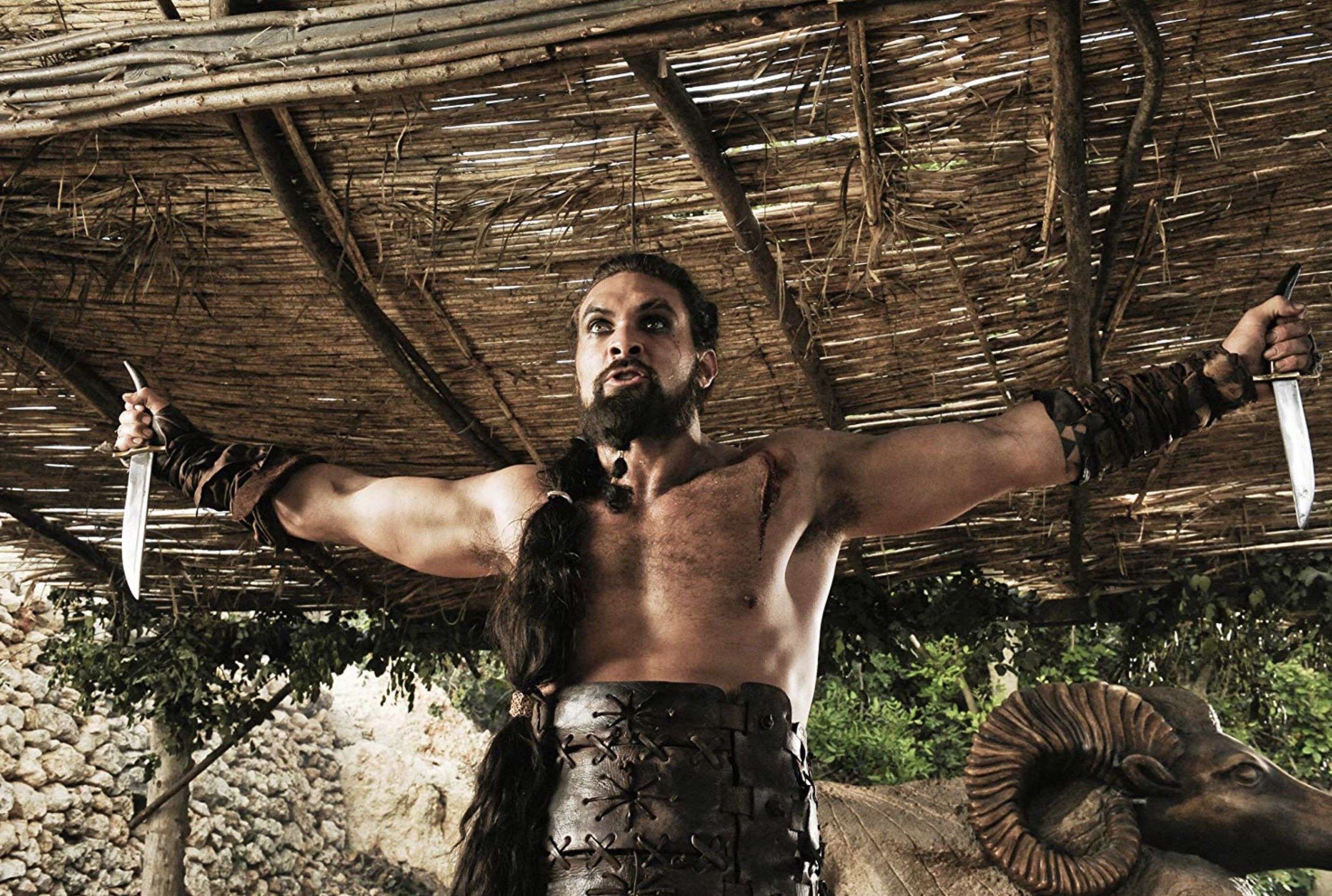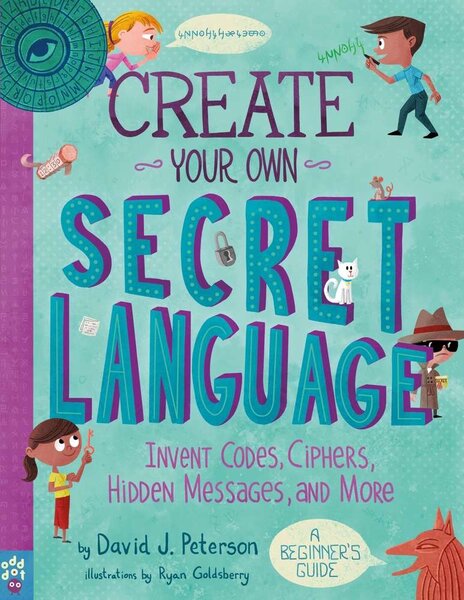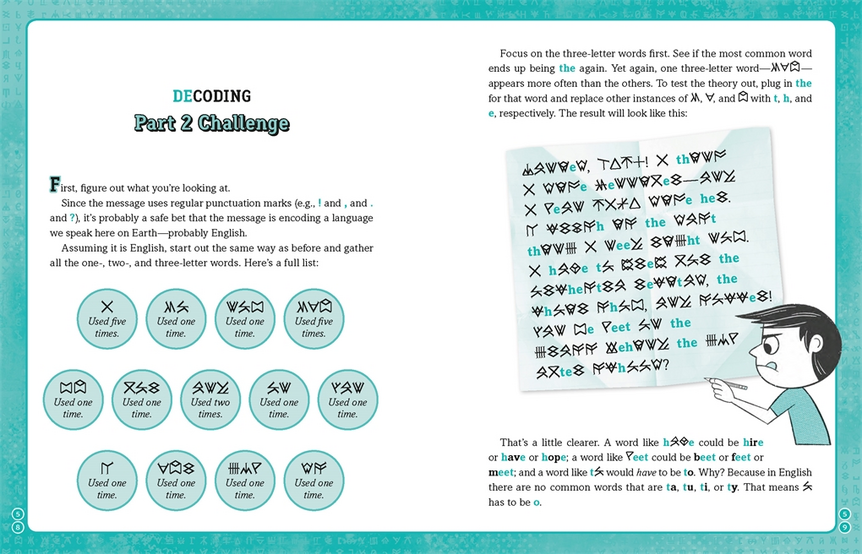Create a free profile to get unlimited access to exclusive videos, sweepstakes, and more!
The man who created Games of Thrones' languages wants to teach kids to invent their own

David Peterson created the Dothraki language, as heard on Game of Thrones, but he’s unable to introduce himself as a professional linguist in Khal Drogo’s tongue. Not just because he’s not totally fluent in the language he crafted, but also because the Dothraki don’t have a word for “professional.”
“In Dothraki, either you are or you aren’t,” Peterson tells SYFY WIRE. “So, if you say it, you are.”
Peterson is what’s known as a conlanger, and he’s the most sought-after language creator in the business. In addition to creating all the various fictional languages heard on Game of Thrones, he’s also crafted languages for Netflix’s The Witcher, The CW's The 100, a couple of Marvel movies, and the upcoming Dune film, to name a few. He’s also written books about conlanging, and later this month he’ll be releasing Create Your Own Secret Language, which will teach kids how to create their own tongues.
Peterson chatted with SYFY WIRE (in English) to talk about his work creating languages, the difference between creating and speaking a new language, and why kids are naturally better at picking up new dialects.
Are you fluent in any of the languages you’ve created?
No. It’s an entirely different skill to be fluent in a language than to create one. Fluency requires memory of working vocabulary, of course, but it also requires practice. I have plenty of practice reciting lines and reading them, so I can read things and sound very good reading them, but for interaction, I’ve had zero practice. So there’s always a certain amount of vocabulary I do remember, depending on the language, but it’s not the same as languages I studied in a classroom.
I think the relationship I have with the languages I created is the same as the relationship I have with languages that I’ve studied only in a book. Like Hindi for example. I did an entire book on Hindi — an older book but a book nonetheless. But that didn’t help me at all when I went to India. I could read, but it’s just not the same.
Do you know how many languages you’ve created?
No. I created about 17 — and there are different ways to count when a language is done — but at least 17 before I started working on Game of Thrones. And after that, it’s been more than 30 languages on 20 or more different projects, not all of which ended up airing. Like, for example, I created stuff for one of the Game of Thrones prequels that was canceled.
What are your first steps when you need to invent a whole new tongue?
When you’re creating a language, of course, you need to take into account the entire world of a speaker because the language needs to be able to express everything that they might want to express. And of course, that’s just one individual, so you multiply that by however many thousands, millions, or billions would have spoken the language over the centuries and that’s what you get.
The way that I create languages now — at least for realistic languages that are supposed to be for human beings and aren’t magical in nature — is that I start at some point and create a system that more or less feels realistic. And then I evolve that forward a few thousand years to age it. It gives it a better sense of realism. It actually makes it easier to make the language look like the languages that we speak here on Earth if you simulate a thousand or so years of linguistic evolution. You change the sounds, you change the meaning of words and you evolve the grammar. Because this is what happens with our languages on Earth and one of the things that make them more or less human.
One of the reasons that you can tell any language spoken on Earth — Thai, Japanese, English, whatever — from something like Esperanto [a proposed international language created in the late 1800s], which looks really fake, is because it doesn’t have any of the hallmarks of the aging that our languages undergo. Since the languages I create are set pieces, they’re supposed to feel realistic and that’s what you have to do. Otherwise, you’ll have these incredibly well-acted, realistic characters in a realistic setting with authentic costumes speaking something that sounds very silly.
Have you worked with any actors who have really taken to one of the languages that you’ve created? I know Emilia Clarke really could deliver a speech in High Valyrian like no other.
The first one that jumped to mind was actually Nichole Galicia from the third season of the SYFY show Defiance. I created a brand new language for that third season and she went well above and beyond wanting to learn bits of the language, asking me to translate lines that were in English into the language so she that could sneak them in because she figured if she just said it that way on camera they would have to stick with it because she felt like the lines should have been in that language.
I gifted her a copy of the language after the season was done because she was so dedicated. It really warmed my heart.
The other was Lucy Fry on Bright. She played the elf girl who was rescued by Jakoby and Will Smith’s character. I worked with all of the actors and actresses on Bright teaching them their lines before we even started filming.
They’d all practiced before the first time they saw me, but even then I still had to work with them. Lucy came in and she said every single line I had given her from memory perfectly in a perfect accent with zero mistakes. I was stunned. This was like 5 minutes into an hour-long session I was like, ‘Well I think we’re done,’ and then she said, ‘Great can you also translate some of these other lines that I wrote just so I can throw them in periodically?’ For the rest of the entire shoot, whenever she had lines, I just proceeded to go on set and just grab a snack and watch because she never made a single error, she never forgot a line, and it always sounded perfect.
People take to languages in different ways. I know I barely scraped by with a B- in high school French but I’m wondering if I had gotten my hands on a copy of your new book, would I have done better? Are kids better at creating languages the same way they’re better at learning them?
Kids are better with language in the following way. First, there’s this top-level of distinction when it comes to acquisition: Adults are better at learning vocabulary and kids are better at learning grammatical rules just intuitively. Also, and this is something the pandemic is helping to bring to light even more — kids have very few responsibilities compared to adults. Something like learning a language, no matter who you are, requires time, effort and dedication, and repeated practice. And that’s something that’s very difficult for adults and gets more difficult the older you get. Kids have that kind of time they can devote to it.
They don’t have a lot of the preconceived prejudices that adults accrue over the years. They don’t have the pressure of thinking, ‘Am I ever going to use this language? This is a waste of time. Why am I doing this?’ They also — and this one I think is very crucial — don’t have the hang-ups that adults do. With any adult, they’re gonna be so good in one language that it will make whatever facility they have in any other language look inferior. You studied French. As an adult, you can speak English very, very well. You can express yourself exactly the way you want to. If you wanna be serious, if you wanna be funny, you can do that. You can’t do that in French, and I bet you feel bad about that. Kids, especially the younger they are, don’t care about making mistakes. They don’t care about any of that.
So hopefully the book I have, which is aimed kind of at that group from like [age] 9 to 12, maybe 14. Hopefully, it will get them to start thinking about language critically at a time when they’re starting to tune out. If it accomplishes nothing else, I want them to think, ‘Wait a minute. Language is interesting and it could be fun, it could be cool, it’s not necessarily a chore.’ That would be my fondest hope.
Create Your Own Secret Language: Invent Codes, Ciphers, Hidden Messages, and More will be available on June 30.




























